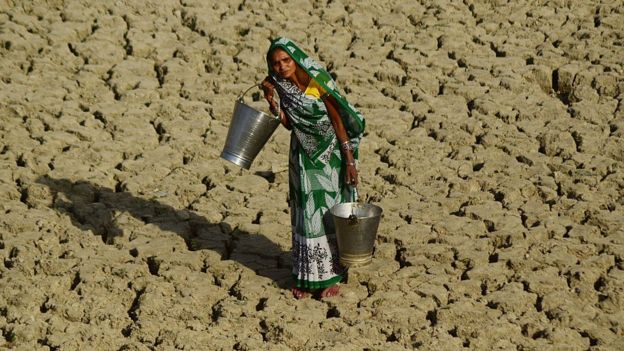United Nations: India is projected to lose 5.8 per cent of working hours in 2030, a productivity loss equivalent to 34 million full-time jobs, due to global warming, particularly impacting agriculture and construction sectors, a report by the UN labour agency said.
The International Labour Organization (ILO) released its report ‘Working on a Warmer Planet – The Impact of Heat Stress on Labour Productivity and Decent Work’ which said that by 2030, the equivalent of more than two per cent of total working hours worldwide is projected to be lost every year, either because it is too hot to work or because workers have to work at a slower pace.
THE AHMEDABAD WAY
The report also noted that Ahmedabad incorporated a cool roofs initiative into its 2017 Heat Action Plan, notably by providing access to affordable cool roofs for the city’s slum residents and urban poor; those who are most vulnerable to the health effects of extreme heat. The initiative aims to turn the roofs of at least 500 slum dwellings into cool roofs, improve the reflectivity of roofs on government buildings and schools, and raise public awareness
“Projections based on a global temperature rise of 1.5°C by the end of the 21st century, and also on labour force trends, suggest that, in 2030, 2.2 per cent of total working hours worldwide will be lost to high temperatures – a productivity loss equivalent to 80 million full-time jobs,” the report said.
It said that the accumulated global financial loss due to heat stress is expected to reach $2,400 billion by 2030.
“If nothing is done now to mitigate climate change, these costs will be much higher as global temperatures increase even further towards the end of the century,” the report said.
Countries in Southern Asia are the most affected by heat stress in the Asia and the Pacific region and by 2030, the impact of heat stress on labour productivity is expected to be even more pronounced.
In particular, up to 5.3 per cent of total working hours (equivalent of 43 million full-time jobs) are projected to be lost, with two-thirds of Southern Asian countries facing losses of at least two per cent.
In a dire warning, the report said that the country most affected by heat stress is India, which lost 4.3 per cent of working hours in 1995 and is projected to lose 5.8 per cent of working hours in 2030.
Because of its large population, India is in absolute terms expected to lose the equivalent of 34 million full-time jobs in 2030 in productivity as a result of heat stress.
National-level GDP losses are projected to be substantial in 2030, with reductions in GDP of more than five per cent expected to occur in Thailand, Cambodia, India and Pakistan due to heat stress.
Heat stress is defined as generally occurring at above 35 degrees Celsius, in places where there is high humidity. Heat stress affects, above all, outdoor workers such as those engaged in agriculture and on construction sites. Excess heat at work is an occupational health risk and in extreme cases can lead to heatstroke, which can be fatal, the UN agency said.

